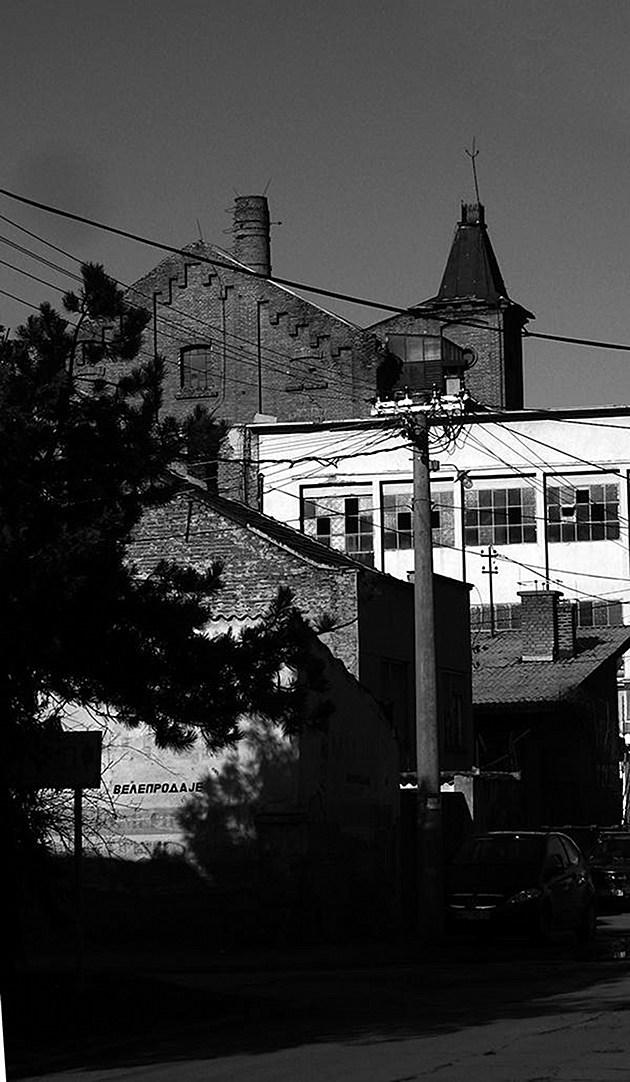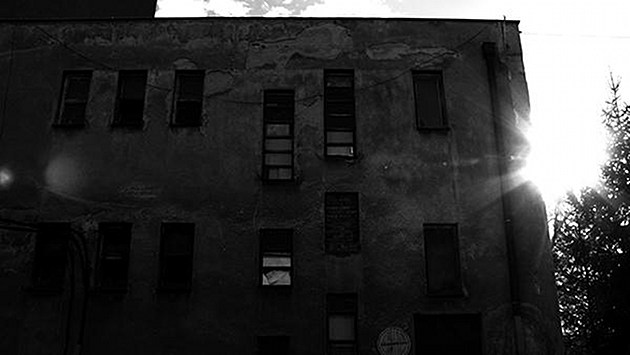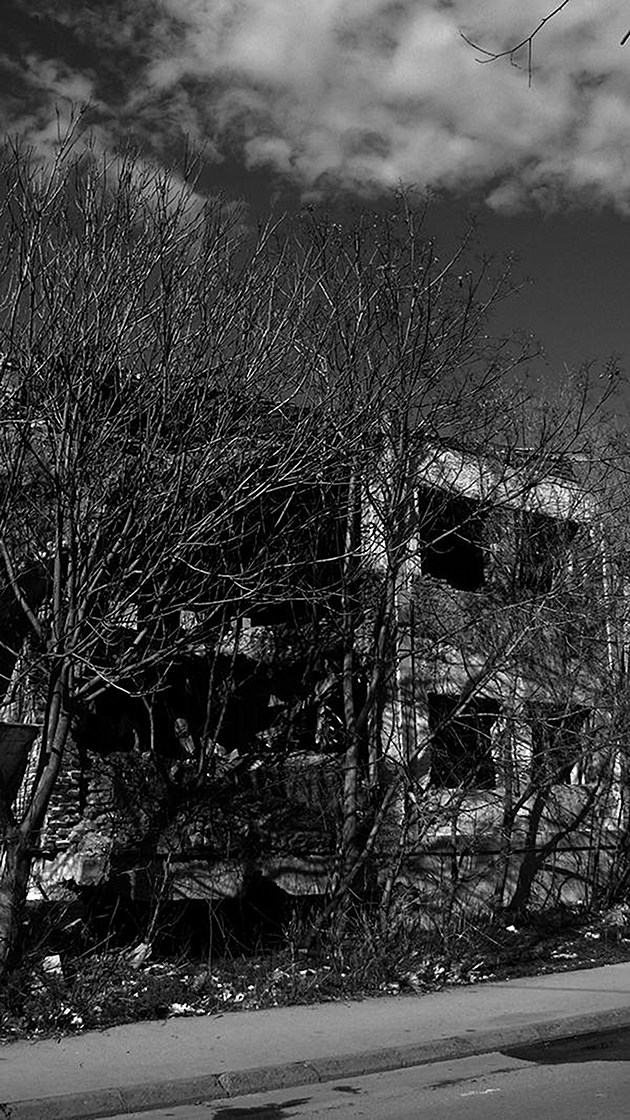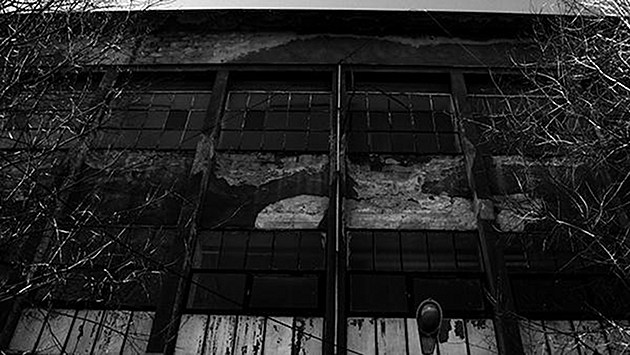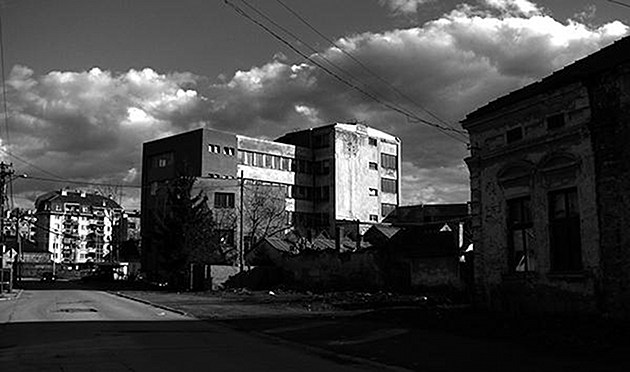Letters From a Post-Socialist Limbo
. . .
We all remember the story about how Tony Iommi lost his fingers in a factory accident, but also how the sound of the factory presses influenced the sound of his guitar. Rob Halford tells us a similar story about the birth of heavy metal from the spirit of Birmingham industry:
“From memories of 68 when the wizard shook the world
Metal came from foundries where the midlands sound unfurled
The bullring was a lonely place of concrete towers and steel
The coal mines and the industries were all I had to feel.”
It is the story as old as metal itself – the story of industrial towns and heavy music they inspire. The question is – what happens with metal once de-industrialization begins?
The city of Niš might be a good place to ask that question. In socialist Yugoslavia, it used to be a leading industrial center – with several huge factory complexes – such as the Electronic Industry and the Machine Industry. Yugoslavian economy – different both from the Western liberal capitalism, and the state economy of the Eastern block – boasted on its democratic and worker-centered character based on worker self-management.
In the nineties, however, with the fall of socialism worldwide, multiethnic and multicultural Yugoslavia, broke apart in a bloody civil war, and most post-Yugoslav economies started off on a journey of post-socialist transition. The factories were privatized, and mostly closed down, the unemployment rates were rising, and the self-management remained only a fading memory. Niš is now a post-industrial city with highest unemployment rates in its recent history. It is from such a city that thrash outfit Limbo hail.
. . .
. . .
The first time I heard them was a year ago on a small metal festival, in which they played a short stint, cramped between a Judas Priest tribute band, and a Municipal Waste-style neo-thrash outfit, reenacting its 80’s role models down to sleeve patches and tight jeans. In such an idolatry heavy atmosphere, Limbo were a real breath of fresh air. Imitation is, as Sargent D has noted, a scourge of modern metal. But Limbo do not fall victim to it. Not that they hide their influences – two of the songs they played were actually covers: Sepultura’s “Propaganda”, and Anti-Nowhere League’s oft-covered “So What?”. It’s just that they treat them creatively and subject them to their own style. Their own stuff was heavy, but melodic, seemingly simple, yet with complex guitar passages.
. . .
. . .
These guys are not young – they are in their early to mid-thirties. I manage to approach their vocalist, Vlay, after the show – it turns out this is not this is not his first band, and that he used to be in an skinhead outfit, but moved away when it started becoming more overtly right wing. I ask him about their day-jobs. He works in a local mall, and the others work similar jobs like driving a bread truck (it is difficult at this point not to remember the story of Anvil). “We’re all working class” – he said, half-apologetically.
Why do these guys persevere in making their music? There is no money in metal in Serbia, or in rock in general for that matter. And in Niš there is only the barest outline of a scene, perhaps not even that. They are too old to do it for the popularity among their peers. It’s gotta be pure enthusiasm.
. . .
. . .
Limbo’s first album, Run Away, which was self-released this August is exactly what I expected – a mature effort of mature musicians. Influences range from Megadeth, Pantera and Suicidal Tendencies, to Swansong period Carcass (especially due to Vlay’s growling vocals, but also rock and groove beats). It is melodic and additively listenable. From the first tacks of Run Away you know you are into a thrash treat, and the next three songs do not disappoint. “Screaming Angels” is a surprise, bringing in a System of a Down grandiosity (and actually, not being an expert in SOAD, I had to check whether it was not a cover – it wasn’t). But the real heart of the album are the last three songs, starting with “Disobey”, continuing into “Mali ljudi” – the only song in Serbian, and ending with “Can’t Take It”.
. . .
. . .
. . .
“Disobey” is a real gem of politically charged thrash (bringing to mind the likes of Sacred Reich’s “Independent”), starting with a powerful riff and the accompanying bass line, and with a wonderful acoustic piece in the middle. A hymn to revolt, but also to working class solidarity. There is a certain clumsiness to the English lyrics, but it is more than made up for by the sheer strength of the message:
“Working as a whore
Never getting payed
In 21st century living like a slave.
Disobey!
Head down – never again!
To take our destiny in our hands
To wake up from apathy – and take a stand!
We will be united like never before!”
“Mali ljudi” (“Small people”) is on the contrary, a real downer, reminiscent of Suicidal Tendencies “Nobody Hears,” singing about a “Small country, small people, small sky – everything is small here, there is nothing left.” The power of the people united, from “Disobey,” is contrasted here with their powerlessness in the role of apathetic private citizens. Finally, the upbeat, fast-paced and bass-driven romp, in the vein of Megadeth’s “Poison was the Cure,” comes as a pleasant surprise and a great ending of a great album.
. . .
. . .
What it the answer to the question from the beginning of the text? Perhaps there is no such thing as the answer , rather, every metal artist has to answer it for herself through her own work. Limbo’s “Run Away” should be seen in this light as one possible answer to this question. Combining classic riffs with modern predicaments, this is a perfect metal album for a post-industrial age, tinged with specific conditions of post-socialism.
. . .
Limbo can be contacted through their Facebook page.
Photos of Niš are taken from Aleksa Skočajić’s collection Crni Put (The Black Road).
. . .
